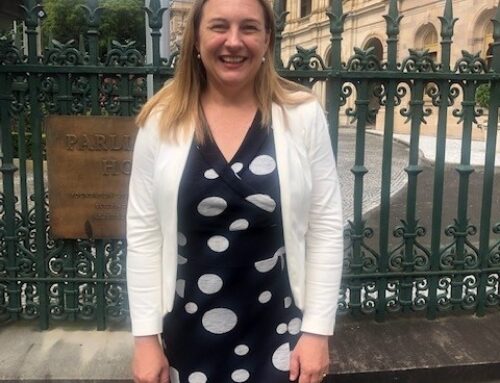An old school friend I hadn’t seen in years once asked me whether I was a lawyer or a solicitor. I explained the difference to her and she said that it was very confusing.
I was reminded of this conversation again recently when a medical practitioner asked me the difference. I was able to use an analogy to the medical field that an orthopaedic surgeon once gave me:-
You can have a nurse who is not a Registered Nurse
You can have a surgeon who is not a Fellow of the Royal College of Surgeons
The devil is in the post nominals.
It is important for anyone turning to legal professionals to understand the difference so that they know who to approach for advice and when. In Queensland, it is also important to understand the symbiotic relationship between Solicitors and Barristers.

Lawyers
Many of us refer to ourselves as “lawyers” because it is a commonly understood word. It is a term which does not strictly have any regulation. However, it is in Queensland a crime for anyone to hold themselves out as either a Solicitor or a Barrister without being on the Roll of Solicitors or Barristers in the Supreme Court of Queensland.
The term “lawyer” is so widely understood in the community as being someone who is qualified as either a Solicitor or a Barrister that it would be fraudulent for anyone to say or suggest they are a lawyer without being on one of those Rolls.
Solicitors
Solicitors are admitted to practice in the Supreme Court of Queensland and must hold a current practicing certificate from the Queensland Law Society in order to practice as Solicitors.
Before qualifying as a Solicitor, we must complete a recognised legal degree – most commonly a Bachelor of Laws or a Juris Doctor (LLB or JD behind our names). In the past, legal study was undertaken through the Queensland Law Society. I have worked with Solicitors who completed their study through the QLS and it appears no less rigorous than the University qualifications.
Before Renee and I qualified as solicitors, we completed a two year apprenticeship known as Articles of Clerkship. Some of our colleagues completed a five year Articles while they were studying. Although the Legal Practice Course was available at that time as an alternative to Articles, it was not as popular.
A type of Practical Legal Training run through a recognised tertiary institution is now required before law graduates can be admitted to practice.
Solicitors have a right to appear in any Queensland Court and, if they are admitted in the High Court of Australia, in the Federal or High Court. Many of us do appear in Court without a Barrister for smaller matters and, very occasionally, in full trials. However, we usually brief Barristers to appear in Court. The role of Solicitors in Court hearings is more commonly to act as stage managers including preparing documents, acting as a liaison between our clients and the Barristers and arranging witnesses.
Legal Practitioners
Every law firm which is incorporated must have at least one Legal Practitioner Director. The Legal Practitioner Director must be a Solicitor. The other Directors of the company do not need legal qualifications. It is the responsibility of the Legal Practitioner Director to ensure that the firm complies with its legal and ethical obligations in the provision of legal services.
In most incorporated law firms, like Kare Lawyers, all Directors are Solicitors. Even if they are not, the non-Solicitor Directors still have legal obligations and liabilities. Nonetheless, it is important to be aware that a Director of a law firm cannot provide legal advice unless they are a Legal Practitioner Director. I have unfortunately encountered one situation where an unqualified “Managing Director” was mistaken for a Solicitor by their client.
Barristers
Barristers (or Counsel) must also complete a recognised course of study in law and then complete the Bar Practice Course before they can be admitted to the Roll of Barristers. This is referred to as being “called to the Bar” or “going to the Bar”.
It is possible, and not infrequent, for young law graduates to become Barristers immediately after they have graduated. It is a long tough road for those junior Barristers who often need to accept a lot of low paying or pro bono work before they catch the eye of Solicitors who are prepared to brief them with higher paying work.
More frequently, law graduates start their careers as Solicitors before being called to the Bar. This is not because the experience is essential but rather because it gives them some much needed cash reserves and contacts within the law. We regularly brief Barristers who have previously worked with us as Solicitors before they became Barristers.
When they are first called to the Bar, all Barristers are Junior Counsel. After they have developed some experience and expertise, they can apply to be appointed Queens Counsel (sometimes referred to as Senior Counsel or Silk).
Who to Use When
Members of the public should consult a Solicitor if they have a legal query. While some Barristers accept “direct briefs” from clients, this is rare unless the client is experienced in the legal process.
Some clients ask us to brief particular Barristers. While we are not averse to working with a Barrister who has an existing relationship with a client, it is important to remember that Solicitors and Barristers must work cooperatively. It is not analogous to a GP referring you to a specialist. We have developed relationships with particular Barristers where we know that we can work together effectively. It is therefore usually preferable to trust the recommendation of your Solicitor as to the best Barrister for your case.
Another consideration for us working in personal injuries litigation is that we will ask Barristers to act on a speculative (no win no fee) basis when we are acting for you on the same basis. Barristers with whom we have an established relationship will be more open to accepting briefs from us on that basis.
Different Solicitors have different views about when to brief a Barrister and which Barrister to brief.
At Kare Lawyers, we do not consider it necessary or useful in most cases to brief Barristers before proceedings are instituted. We sometimes do so at the request of our clients or if the case is particularly unique or complex and likely to run to trial. Barristers offer an objective view of the evidence.
The best Barristers, whether they are Junior Counsel or Queens Counsel, are too busy to be able to attend Compulsory Conferences regularly and, as experienced personal injuries lawyers, we are well qualified to represent our clients at this stage.
While we only practice in personal injuries litigation, please feel free to contact us if you are ever unsure where to turn to for legal advice. We are more than happy to point you in the right direction.


![Medical Records and Claims for Personal Injuries – Maher v Russell [2022] ACTSC 297](https://karelawyers.com.au/wp-content/uploads/2023/02/files.jpg)



